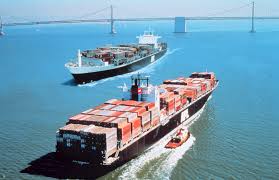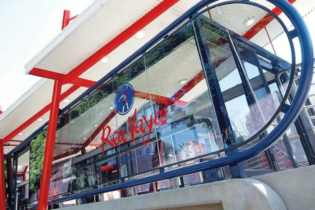Maritime arbitration in Africa has the potential to become an effective tool in resolving cross-border shipping disputes in sub-Saharan Africa.
This is according to Andrew Pike, head of the Ports, Terminals & Logistics Corridors Sector at Bowman Gilfillan Africa Group’s Durban office, who was speaking at the first International Chamber of Commerce (ICC) Africa Regional Conference, held in Nigeria from 19-21 June 2016. “Where maritime services are provided in South Africa between one or more local parties, it has been our experience that the parties are more likely to refer disputes arising to high court litigation and less likely to refer disputes arising to arbitration (for example, in ship agency agreements). On the other hand, some government organisations such as South Africa’s Transnet National Ports Authority and Transnet Port Terminals, already turn to arbitration in many instances (for example, in their port leases and port or terminal usage agreements),” he says. “In the international shipping contracts that we encounter in the course of our South African practice, English law remains by far the most popular choice of law and London the most popular choice of seat for arbitrations. The laws and arbitration seats of Singapore and New York follow on second and third in the popularity stakes, in our experience,” he said. Pike added that parties engaged in international maritime disputes could agree a seat of arbitration in Africa, even where they are applying a foreign law to the resolution of the dispute itself. In such a case, it is envisaged that any arbitration hearing would take place at a venue in Africa and also be subject to the procedural rules and court supervision of the country in Africa so chosen by the parties. “Encouraging parties to arbitrate their shipping disputes in Africa may require changes to the legislative framework of those countries seeking to host more international arbitrations,” he explains.“To this end,” he said, “South Africa already has an established maritime enforcement regime. South African is also considering a draft International Commercial Arbitration Bill incorporating the United Nations Commission on International Trade Law’s (UNCITRAL) Model Law on international commercial arbitrations and repealing the existing Enforcement Act to replace it with a new enforcement framework.”
Pike noted that the number of maritime arbitrations in Africa may be further bolstered by the establishment of one or more maritime arbitration centres in Africa, possibly with their own set of bespoke maritime arbitration rules, and seeking to bring together Africa’s local legal, technical and commercial shipping expertise. These would require the support of an experienced panel of shipping arbitrators who would be able to respond to appointments at short notice. “In addition, both the African Maritime Transport Charter and 2050 AIMS seek to increase Africa’s share of global ship ownership. They envisage the possibility of an African fleet doing cabotage trade around Africa. Cabotage places restrictions on the ships that are allowed to trade within a particular region. So, for example, only ships beneficially owned/operated by nationals of African countries might be allowed to trade between African states,” he said. Pike noted that if these and other initiatives had their desired effect, more nationals from African countries owning/operating ships will be negotiating charter-parties, bills of lading and other shipping contracts with African counter-parties. They will, therefore, be in a stronger position to influence the law and dispute resolution mechanisms governing their charter-parties, bills of lading and other shipping contracts. “These parties might be persuaded to incorporate clauses into their contracts, which provide for arbitration to be held in a country in Africa, either in the country concerned or at a specialist African maritime arbitration centre, either adopting local bespoke arbitral rules or else importing rules, such as those of the London Maritime Arbitrators Association. “These parties might further be encouraged to draw on Africa’s wealth of local legal, technical and commercial expertise in the maritime sphere, such as the members and rules of the Maritime Arbitrators Association of Nigeria,” he added.






